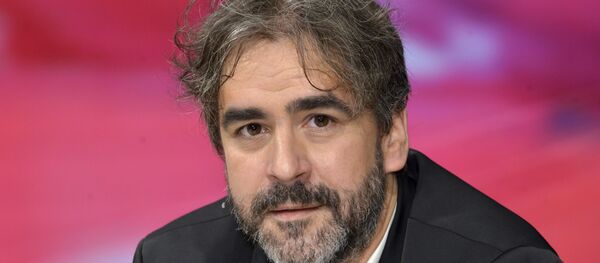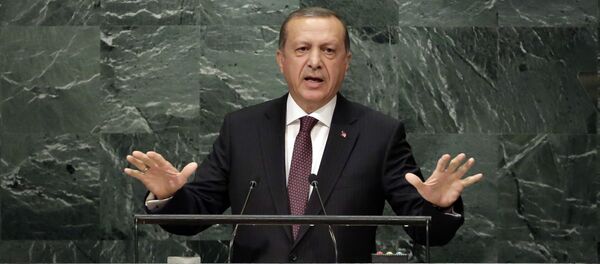He is one of six German citizens detained in the crackdown on followers of exiled Turkish cleric Fethullah Gulen, now living in the US, who Turkish President Recep Tayyip Erdoğan blames for being behind the failed coup, July 2016.
Seit 12 Tagen ist Deniz in Polizeigewahrsam. Er hat seinen Anwalten einen Bericht über die Haftumstande diktiert:https://t.co/HBWCe9BtgL
— Deniz Yücel (@Besser_Deniz) February 26, 2017
Tweet: "For 12 days, Deniz has been in police custody. He has dictated to his lawyers a report on the conditions of imprisonment"
German Chancellor Angela Merkel has demanded the release of Yucel amid growing calls for her government to block a planned visit to Germany by Erdogan over the case.
Meanwhile, Turkey summoned the German ambassador in Ankara, after the cancellation of a pro-Erdogan rally in Gaggenau, a town in Baden-Wurttemberg, Germany. Officials stated that the planned rally was taking place in a space too small for the anticipated crown, citing security fears.
The Turkish population in Germany is three million and the majority are eligible to vote in the forthcoming referendum, April 16, on the transfer of enormous powers to Erdogan, under his controversial changes to the constitution.
'Dictator'
The latest row follows on from the row over the front cover of the respected German magazine Der Spiegel, showing Erdogan wearing sunglasses reflecting two minarets as rockets taking off from a mosque and describing him in an article as a "Dictator".
'Der Spiegel' special edition: '#Turkey, the country which lost its freedom.Dictator at war w (own) Kurdish cities' pic.twitter.com/z9N8MTrEEm
— Cahida Dêrsim (@dersi4m) 10 September 2016
Prior to that, there was diplomatic strain when German satirist Jan Böhmermann broadcast a poem on ZDF television sitting in front of a portrait of Erdoğan, reading out a poem that accusing the Turkish president of "repressing minorities, kicking Kurds and slapping Christians while watching child porn", among other things.
Erdogan demanded that Bohmermann be prosecuted, which German Chancellor Angela Merkel has allowed, under a little known German law, although, no prosecution — in the end — followed.
Turkey banned German lawmakers from visiting Incirlik Air Base, in southern Turkey, used by the German military in response to a German parliamentary resolution declaring the 1915 massacre of Armenians by Ottoman forces "genocide," which Turkey denies.



